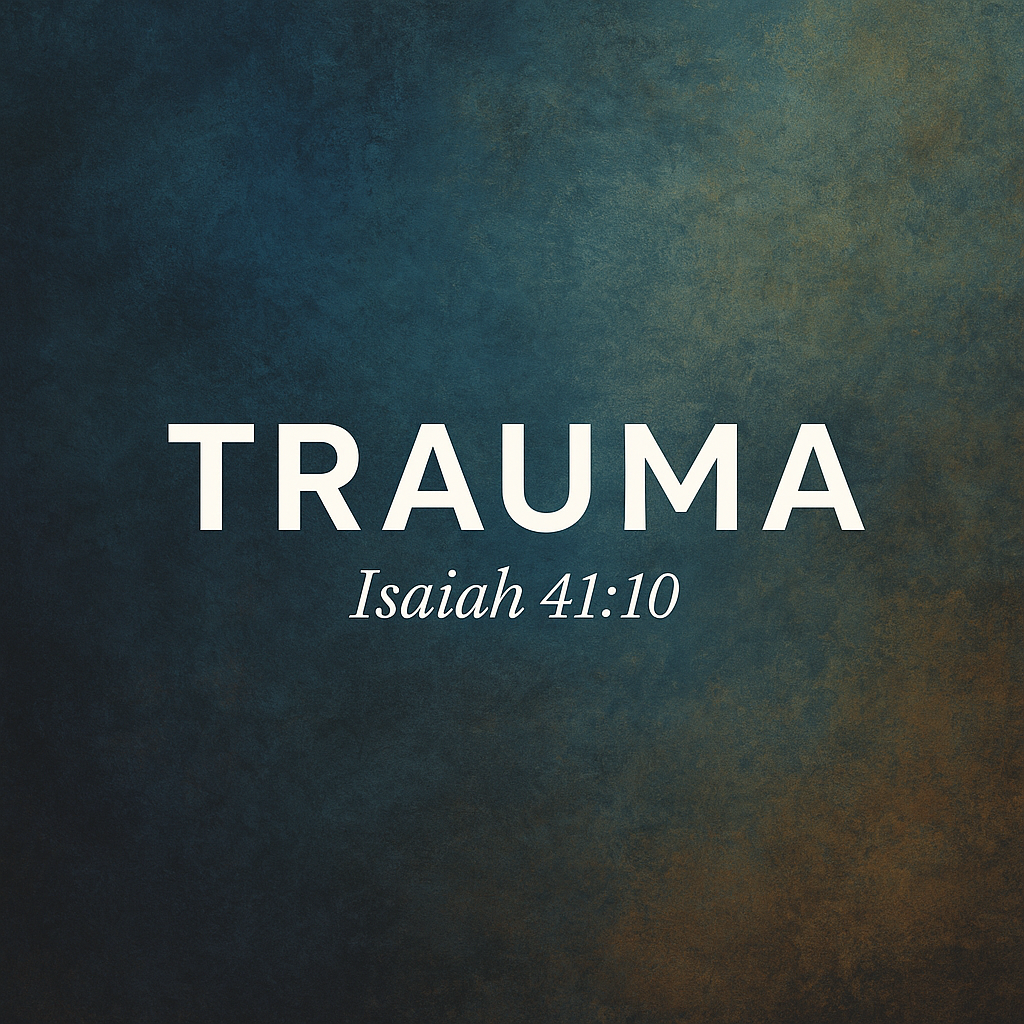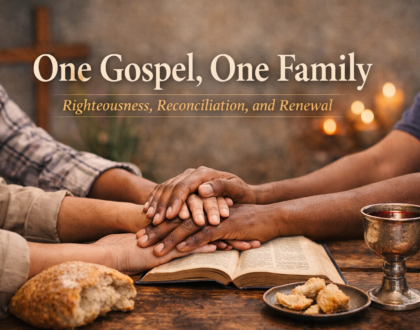Fear Not: Trauma and Faith

“So do not fear, for I am with you; do not be dismayed, for I am your God. I will strengthen you and help you; I will uphold you with my righteous right hand.” – Isaiah 41:10
We often think of trauma as something reserved for a therapist’s office or clinical conversation—something for psychologists, social workers, or emergency responders. But what if the church is one of the most important places to talk about trauma? What if God has already spoken to this pain—and what if we’re meant to be part of the healing?
Let’s begin with what trauma is. According to the American Psychological Association, trauma is any disturbing experience that overwhelms a person’s ability to cope, often leaving behind long-term effects on one’s emotions, thoughts, behavior, and even beliefs about the world. Trauma may come from a single moment or an extended season of suffering. It can come through violence, abuse, accidents, natural disasters, or even the slow unraveling of a life we once knew—a job lost, a body changed, a relationship broken, a future we dreamed of that never arrived.
It’s important to remember: trauma is not the event itself. It’s how the person experiences and processes that event. This means trauma is subjective—two people can go through the same moment and walk away with very different emotional and spiritual wounds, depending on things like prior experience, personal resilience, or who was there to support them.
For those reasons, trauma isn’t rare. In fact, it’s remarkably common.
And that’s exactly why the church should be talking about it.
We are, after all, a people who gather in the name of a Savior who was “a man of sorrows and acquainted with grief” (Isaiah 53:3). We follow one who suffered and who draws near to those who suffer. And the truth is—no matter how strong our faith—when trauma strikes, it often hits us at our core: not just physically or mentally, but spiritually.
Trauma can shake our sense of who we are, how the world works, and where God is in all of it. It makes what was once solid feel uncertain. We ask questions like: “Why did this happen?” “Where was God?” “Can I ever feel safe again?” These are not unfaithful questions—they’re deeply spiritual ones.
That’s why Isaiah 41:10 speaks so powerfully to us in our pain.
In this passage, the people of Israel are living in exile in Babylon. They have lost their land, their homes, their sense of identity. They are grieving. But more than that—they are afraid. And fear, as we’ve seen, is at the heart of trauma. The prophet speaks into that fear: “Do not fear, for I am with you… I will strengthen you and help you…”
Notice that God doesn’t say, “You shouldn’t feel this way.” God doesn’t say, “You’re overreacting.” Instead, God names the fear—and responds with presence, strength, and comfort. The people are not told to pretend everything is fine. They are reminded that they are not alone.
This is what makes spiritual trauma so hard—it’s not just that something terrible happened, it’s that we begin to wonder if God has abandoned us in it. Isaiah reminds us: even in exile, even in fear, God has not let go.
So how do we begin to heal?
One key way is by building resilience. This is true for both grief and trauma. While grief is primarily a response to loss (like a death or separation), and trauma is a response to threat (such as violence or danger), both share that feeling of being overwhelmed. And in both, the path toward healing involves restoring our ability to function, to feel, and to hope again.
Grief and trauma often ride in tandem—especially when the loss we experience is sudden or violent. And while grief tends to evoke sadness and emptiness, trauma stirs up fear and helplessness. The goal in grief is to find a new way to live without what was lost. The goal in trauma is to restore a sense of safety and control. But both require time, grace, and community.
And that’s where the church comes in.
The church isn’t here to replace therapy or medical treatment. But the church can offer something that no one else can: a place where God’s presence is proclaimed, where fear is met with faith, and where wounded hearts are not judged but held. We can be a people who do not flinch from hard stories. We can be a people who sit with others in their pain and whisper the words of Isaiah: “Do not fear, for I am with you.”
In the coming weeks, we’ll be exploring how we can prepare for and recover from trauma and grief—how to build resilience in the face of life’s greatest challenges. But today, let Isaiah’s words settle into your soul. You are not alone. Whatever trauma you carry, God sees you, walks with you, and holds you—by the strength of His righteous hand.
You don’t have to be unafraid to be faithful. Just remember and know: you’re not alone.
Blessings ~ Pastor Jason
Recommended Posts

Read the Instructions: Obedience Begins with Listening
February 3, 2026

God Gave Them Up
January 27, 2026

One Gospel, One Family
January 26, 2026
